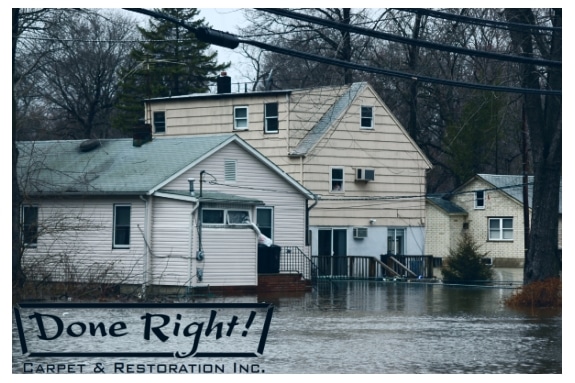
1. Make your gutters are clean of gunk and debris. Gutters are designed to funnel water away from your home, but debris can inhibit that. Clogged gutters can almost guarantee that damage from a storm will occur in your home.
2. Verify your gutter empties water away from your home to prevent your basement from flooding. This is a simple method of preventing costly repairs to your home from disaster damage. You can also install gutter extenders to push the water further from your home.
3. Ventilate your attic during the winter. As the hot air in your home rises to the attic and meets the heavy snow on your roof, it prevents heat from leaving and creates a layer of insulation in your attic causing the attic to become warmer. The condensation becomes moist and refreezes, allowing the water to build up; freeze and refreeze again. This damages window panes, wall cavities, and drywall/paint. In very extreme cases the ceiling can collapse. Add some vents to your roof or eaves to help ease this issue.
4. Unplug appliances to prevent surge damage. Make sure all cables and power cords are free from tree and shrubs that could cause power loss in heavy snow or high winds. This will also prevent a power surge, electrical fires and damage to electronics.
5. If you are expecting a storm with severe winds and high water levels, move your valuables off the floor. Put them in the attic or somewhere high on a self. Same goes for electronics. Remove them from the floor immediately. If this is after the fact, make sure your power is turned OFF. While water in it’s purest form is not naturally conductive to electricity, most water is contaminated (unless in a lab environment) and is full of impurities like salt that naturally conducts electricity. Electrocution can be lethal.
6. Contact Done Right when you suspect damage, immediately. We can prevent further damage with technologically advanced, top of the line water removal equipment. We can even help you through the claims process.




